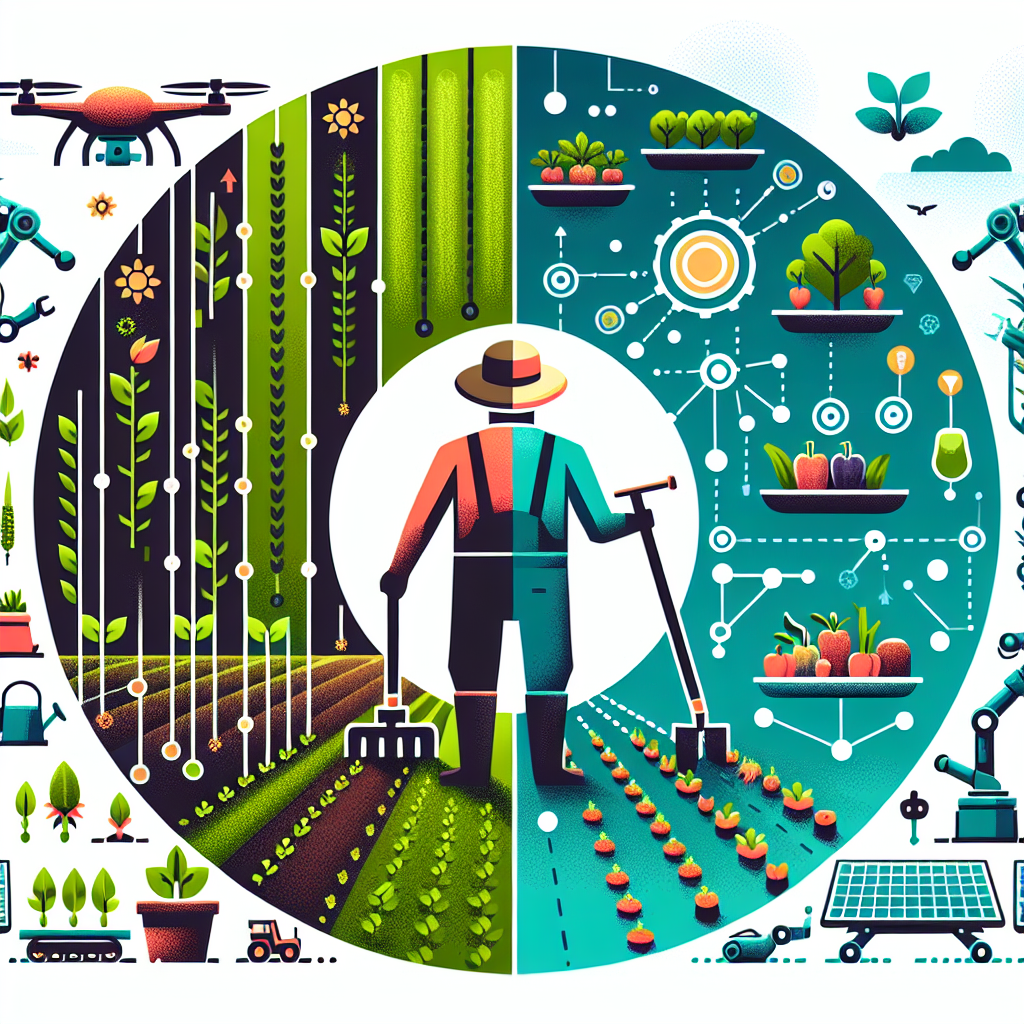Artificial Intelligence (AI) has been revolutionizing various industries, and agriculture is no exception. With the world population expected to reach nearly 10 billion by 2050, the demand for food is on the rise. Organic farming, in particular, is gaining popularity as consumers become more conscious of the environmental impact of traditional farming methods. AI applications in organic farming have the potential to increase efficiency, reduce waste, and improve sustainability. In this article, we will explore some of the ways AI is being used in organic farming and address common questions about this technology.
AI Applications in Organic Farming
1. Precision Farming: One of the key applications of AI in organic farming is precision farming. This involves using AI algorithms to analyze data from sensors, drones, and satellites to customize farming practices according to the specific needs of each crop. For example, AI can help farmers optimize the use of water, fertilizers, and pesticides by providing real-time information on soil conditions, weather patterns, and pest infestations. This not only reduces the environmental impact of farming but also increases crop yields and quality.
2. Crop Monitoring: AI-powered drones equipped with cameras and sensors can be used to monitor crops for signs of disease, nutrient deficiencies, and pest infestations. By analyzing images and data collected by drones, AI algorithms can identify potential issues early on, allowing farmers to take preventive measures before they escalate. This proactive approach to crop monitoring can help reduce the use of chemical pesticides and improve overall crop health.
3. Weed Control: Weeds are a major problem in organic farming, as synthetic herbicides are not allowed. AI-powered robots and drones are being developed to autonomously detect and remove weeds without the need for manual labor. These robots use computer vision and machine learning algorithms to distinguish between crops and weeds, enabling them to target and eliminate weeds while leaving the crops unharmed. This not only reduces labor costs but also minimizes the environmental impact of weed control.
4. Predictive Analytics: AI can analyze historical data on weather patterns, crop yields, and soil conditions to make predictions about future agricultural trends. This allows farmers to make informed decisions about planting schedules, crop rotations, and irrigation practices. By using predictive analytics, farmers can optimize their farming practices to maximize yields, reduce waste, and minimize environmental impact.
5. Supply Chain Management: AI can also be used to improve supply chain management in organic farming. By analyzing data on market demand, transportation costs, and inventory levels, AI algorithms can help farmers optimize the distribution of their products. This can reduce food waste, increase profitability, and ensure a steady supply of organic produce to consumers.
FAQs about AI Applications in Organic Farming
Q: How much does it cost to implement AI technology in organic farming?
A: The cost of implementing AI technology in organic farming can vary depending on the scale of the operation and the specific applications being used. In general, the initial investment in AI hardware, software, and training can be significant, but the potential benefits in terms of increased productivity, reduced waste, and improved sustainability can outweigh the costs in the long run.
Q: Can AI completely replace human labor in organic farming?
A: While AI technology has the potential to automate many tasks in organic farming, such as crop monitoring and weed control, human labor is still essential for certain activities, such as harvesting and quality control. AI is best used as a tool to augment human labor and improve efficiency, rather than as a complete replacement for human workers.
Q: Is AI technology safe for organic farming?
A: AI technology is generally safe for organic farming, as it can help farmers reduce the use of chemical pesticides and synthetic fertilizers, which are not allowed in organic agriculture. However, it is important for farmers to ensure that the AI systems they use comply with organic farming standards and do not pose any risks to human health or the environment.
Q: Can small-scale organic farmers benefit from AI technology?
A: Yes, small-scale organic farmers can benefit from AI technology, as it can help them increase productivity, reduce costs, and improve sustainability. There are a growing number of AI solutions tailored specifically for small-scale farmers, including affordable drones, sensors, and software applications that can help streamline farming operations and optimize crop yields.
Q: What are the potential drawbacks of using AI technology in organic farming?
A: While AI technology offers many benefits for organic farming, there are also potential drawbacks to consider. These may include the high initial cost of implementation, the need for specialized training and expertise, and concerns about data privacy and security. It is important for farmers to carefully evaluate the pros and cons of using AI technology in their operations and to seek guidance from experts in the field.
In conclusion, AI applications in organic farming have the potential to revolutionize the way food is produced, making agriculture more efficient, sustainable, and environmentally friendly. By leveraging the power of AI technology, farmers can optimize their farming practices, reduce waste, and improve crop yields, ultimately contributing to a more food-secure and sustainable future. As the technology continues to evolve, it will be exciting to see how AI will further transform the field of organic farming and help meet the growing demand for healthy, organic produce.

